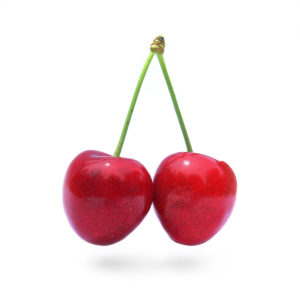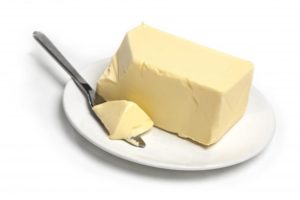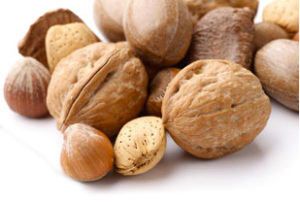 A number of recent studies looked at vitamin D and various diseases. All showed benefits of higher vitamin D levels in the blood: lower rates of cancer incidence, improved heart function in those with heart failure, lower rates of leukemia incidence, lower rates of breast cancer, and less aggressive breast and prostate cancer. However, one study found no benefits to vitamin D supplementation during pregnancy and the child's asthma risk. Older studies found low levels of vitamin D linked to higher risk of premenopausal breast cancer, and also to thicker melanomas at diagnosis (the thinner the melanoma, the better the prognosis).
A number of recent studies looked at vitamin D and various diseases. All showed benefits of higher vitamin D levels in the blood: lower rates of cancer incidence, improved heart function in those with heart failure, lower rates of leukemia incidence, lower rates of breast cancer, and less aggressive breast and prostate cancer. However, one study found no benefits to vitamin D supplementation during pregnancy and the child's asthma risk. Older studies found low levels of vitamin D linked to higher risk of premenopausal breast cancer, and also to thicker melanomas at diagnosis (the thinner the melanoma, the better the prognosis).
Everyone agrees that sunshine is an excellent source of vitamin D, but there is still disagreement over what are the best daily vitamin D supplement dosages, or even what are optimal levels of vitamin D in the blood (measured as serum 25-hydroxyvitamin D or 25(OH)D). In 2010, the Institute of Medicine (IOM) concluded that levels lower than 12 ng/ml represented a vitamin D deficiency and recommended a target of 20 ng/ml, which could be met in most healthy adults (ages 19 to 70) with 600 International Units of vitamin D each day. Since then most researchers have argued for higher blood serum levels: most agreeing that over 30 ng/ml is best, while some advocating 50 ng/ml or more. But even what's too high (and could cause problems) is debated. Many vitamin D supporters now advocate taking 800 to 1,000 IUs of vitamin D daily (some say up to 4000 IUs daily is OK). Remember to look for vitamin D3 supplements, not D2.
This study found that higher levels of vitamin D (measured as serum 25(OH)D) are better, with 25(OH)D concentrations of at least 40 ng/ml best to reduce cancer risk (all types of cancer). From Medical Xpress: Higher levels of vitamin D correspond to lower cancer risk, researchers say
Researchers at University of California, San Diego School of Medicine report that higher levels of vitamin D - specifically serum 25-hydroxyvitamin D - are associated with a correspondingly reduced risk of cancer. The findings are published in the April 6, online issue of PLOS ONE.
Garland and his late brother, Frank, made the first connection between vitamin D deficiency and some cancers in 1980 when they noted populations at higher latitudes (with less available sunlight) were more likely to be deficient in vitamin D, which is produced by the body through exposure to sunshine, and experience higher rates of colon cancer. Subsequent studies by the Garlands and others found vitamin D links to other cancers, such as breast, lung and bladder.
The new PLOS ONE study sought to determine what blood level of vitamin D was required to effectively reduce cancer risk....The only accurate measure of vitamin D levels in a person is a blood test....Cancer incidence declined with increased 25(OH)D. Women with 25(OH)D concentrations of 40 ng/ml or greater had a 67 percent lower risk of cancer than women with levels of 20 ng/ml or less.
Garland does not identify a singular, optimum daily intake of vitamin D or the manner of intake, which may be sunlight exposure, diet and/or supplementation. He said the current study simply clarifies that reduced cancer risk becomes measurable at 40 ng/ml, with additional benefit at higher levels. "These findings support an inverse association between 25(OH)D and risk of cancer," he said, "and highlight the importance for cancer prevention of achieving a vitamin D blood serum concentration above 20 ng/ml, the concentration recommended by the IOM for bone health."
From Science Daily: Vitamin D improves heart function, study finds
A daily dose of vitamin D3 improves heart function in people with chronic heart failure, a five-year research project has found. The study involved more than 160 patients who were already being treated for their heart failure using proven treatments including beta-blockers, ACE-inhibitors and pacemakers.
Participants were asked to take vitamin D3 or a dummy (placebo) tablet for one year. Those patients who took vitamin D3 experienced an improvement in heart function which was not seen in those who took a placebo....In the 80 patients who took Vitamin D3, the heart's pumping function improved from 26% to 34%. In the others, who took placebo, there was no change in cardiac function.
Disappointing results. From Medscape: Vitamin D Disappoints: Prenatal Supplementation and Childhood Asthma
Two recent clinical trials examined maternal supplementation with vitamin D and postpregnancy offspring outcomes for asthma and wheezing....However, with respect to preventing asthma in offspring, there is no clear evidence for vitamin D supplementation in pregnant women.
From PLOS ONE: Vitamin D Deficiency at Melanoma Diagnosis Is Associated with Higher Breslow Thickness
Vitamin D deficiency at the time of melanoma diagnosis is associated with thicker tumours that are likely to have a poorer prognosis. Ensuring vitamin D levels of 50 nmol/L or higher in this population could potentially result in 18% of melanomas having Breslow thickness of <0.75 mm rather than ≥0.75 mm.
Reported in 2013. From Medical Express: Low vitamin D levels linked to high risk of premenopausal breast cancer
A prospective study led by researchers from the University of California, San Diego School of Medicine has found that low serum vitamin D levels in the months preceding diagnosis may predict a high risk of premenopausal breast cancer. The study of blood levels of 1,200 healthy women found that women whose serum vitamin D level was low during the three-month period just before diagnosis had approximately three times the risk of breast cancer as women in the highest vitamin D group.
A 2011 meta-analysis by Garland and colleagues estimated that a serum level of 50 ng/ml is associated with 50 percent lower risk of breast cancer. While there are some variations in absorption, those who consume 4000 IU per day of vitamin D from food or a supplement normally would reach a serum level of 50 ng/ml.
 An new analysis of published studies found that air pollution is linked to high blood pressure. Yes, breathing polluted air has health effects (here, here, and here). From Science Daily:
An new analysis of published studies found that air pollution is linked to high blood pressure. Yes, breathing polluted air has health effects (here, here, and here). From Science Daily:
 As we know, chronic inflammation is linked to cancer and other diseases. It is long-term persistent low-grade inflammation, and it has a "wear and tear" effect on the body. What causes chronic inflammation? Being overweight or obese, sedentary lifestyle, Western (low fiber, high processed foods and meat) diet, chronic illnesses, viruses or bacteria (e.g., gum disease), smoking, air pollution, stress, excessive alcohol intake. It often does not have symptoms, but doctors can test for C-reactive protein levels (CRP), which increase when the body is inflamed. So you absolutely want to lower chronic inflammation if you can.
As we know, chronic inflammation is linked to cancer and other diseases. It is long-term persistent low-grade inflammation, and it has a "wear and tear" effect on the body. What causes chronic inflammation? Being overweight or obese, sedentary lifestyle, Western (low fiber, high processed foods and meat) diet, chronic illnesses, viruses or bacteria (e.g., gum disease), smoking, air pollution, stress, excessive alcohol intake. It often does not have symptoms, but doctors can test for C-reactive protein levels (CRP), which increase when the body is inflamed. So you absolutely want to lower chronic inflammation if you can. The researchers go overboard in their claims of what this study shows (after all, only 15 men were in the study, their blood pressure was only slightly elevated, and they were studied only for a short time). But.....what this study does show is that tart cherry juice seems to have some health benefits, such as lowering blood pressure for a while. Even though the researchers received funding from the Cherry Marketing Institute, it doesn't change the fact that cherries are considered healthy foods to eat. Montmorency tart cherries (MCs) are high in numerous phytochemicals (which have health benefits), including flavonoids (isorhamnetin, kaempferol, quercetin, catechin, epicatechin, procyanidins, and anthocyanins).
The researchers go overboard in their claims of what this study shows (after all, only 15 men were in the study, their blood pressure was only slightly elevated, and they were studied only for a short time). But.....what this study does show is that tart cherry juice seems to have some health benefits, such as lowering blood pressure for a while. Even though the researchers received funding from the Cherry Marketing Institute, it doesn't change the fact that cherries are considered healthy foods to eat. Montmorency tart cherries (MCs) are high in numerous phytochemicals (which have health benefits), including flavonoids (isorhamnetin, kaempferol, quercetin, catechin, epicatechin, procyanidins, and anthocyanins). This is huge. Decades long advice dietary advice to Americans was wrong. New research finds that the medical advice to replace saturated fat in the diet with vegetable oils rich with linoleic acid lowers cholesterol, but does
This is huge. Decades long advice dietary advice to Americans was wrong. New research finds that the medical advice to replace saturated fat in the diet with vegetable oils rich with linoleic acid lowers cholesterol, but does  Another study that found benefits to dog ownership. The study authors concluded that: "Our study provides evidence that dog owners are at a lower risk for ischemic stroke, hemorrhagic stroke and heart failure." This could be to daily exercise, or that dog ownership results in less stress or better psychosocial health, or even some other reason (perhaps dog owners are healthier to start with). Note: myocardial infarction (MI) is commonly known as a heart attack. From Medscape:
Another study that found benefits to dog ownership. The study authors concluded that: "Our study provides evidence that dog owners are at a lower risk for ischemic stroke, hemorrhagic stroke and heart failure." This could be to daily exercise, or that dog ownership results in less stress or better psychosocial health, or even some other reason (perhaps dog owners are healthier to start with). Note: myocardial infarction (MI) is commonly known as a heart attack. From Medscape: Nice summary article about the known benefits of nuts and seeds, and the nutrients they contain. Bottom line: all nuts and seeds are beneficial to health. It's best to eat a variety of nuts, and eat some nuts daily or at least a few times a week. A typical serving is 1/4 cup or small handful of nuts. Go to the article for the complete nut and seed list and a nut and seed nutrient chart. From Today's Dietician:
Nice summary article about the known benefits of nuts and seeds, and the nutrients they contain. Bottom line: all nuts and seeds are beneficial to health. It's best to eat a variety of nuts, and eat some nuts daily or at least a few times a week. A typical serving is 1/4 cup or small handful of nuts. Go to the article for the complete nut and seed list and a nut and seed nutrient chart. From Today's Dietician: A recent
A recent  Remember all the medical advice for years about not eating eggs frequently (high cholesterol! heart disease!) and to instead eat egg white omelettes if one absolutely wanted to eat eggs? Remember the obsession with dietary cholesterol? Well, this recent research followed 1032 men for 21 years and found that a relatively high intake of dietary cholesterol, or eating one egg every day, was not associated with an elevated risk of incident coronary heart disease - not in the entire study population nor in those with the APOE4 phenotype. Also, the study did not establish a link between dietary cholesterol or eating eggs with thickening of the common carotid artery walls. Time to enjoy eggs again! From Science Daily:
Remember all the medical advice for years about not eating eggs frequently (high cholesterol! heart disease!) and to instead eat egg white omelettes if one absolutely wanted to eat eggs? Remember the obsession with dietary cholesterol? Well, this recent research followed 1032 men for 21 years and found that a relatively high intake of dietary cholesterol, or eating one egg every day, was not associated with an elevated risk of incident coronary heart disease - not in the entire study population nor in those with the APOE4 phenotype. Also, the study did not establish a link between dietary cholesterol or eating eggs with thickening of the common carotid artery walls. Time to enjoy eggs again! From Science Daily: